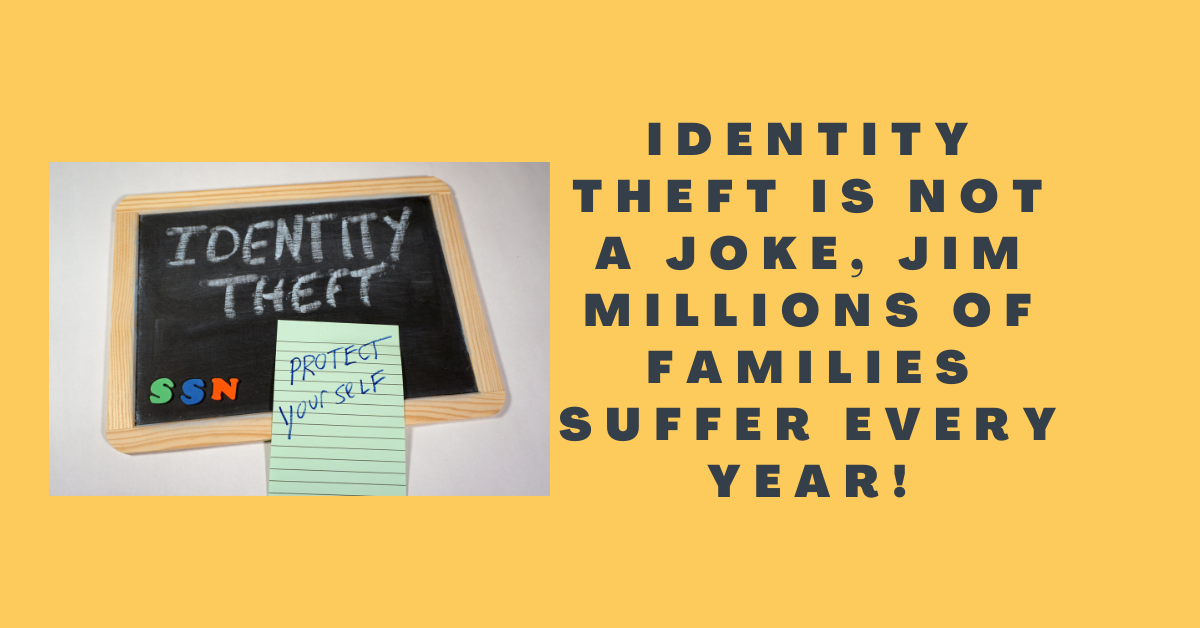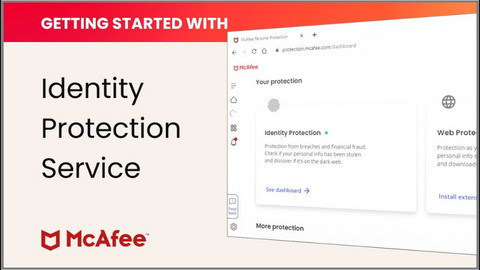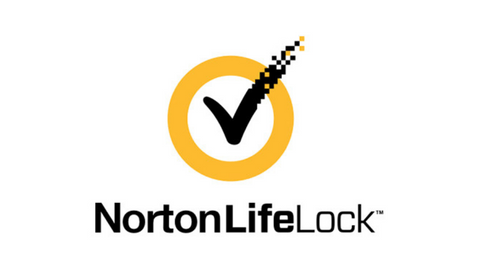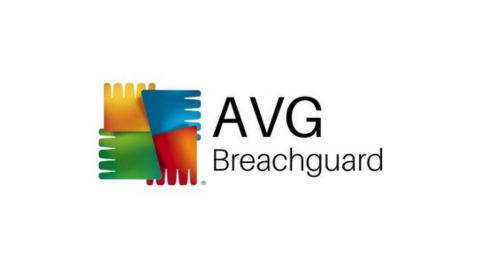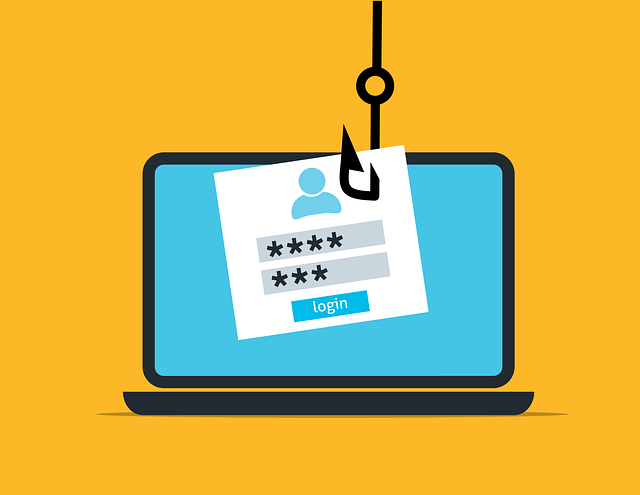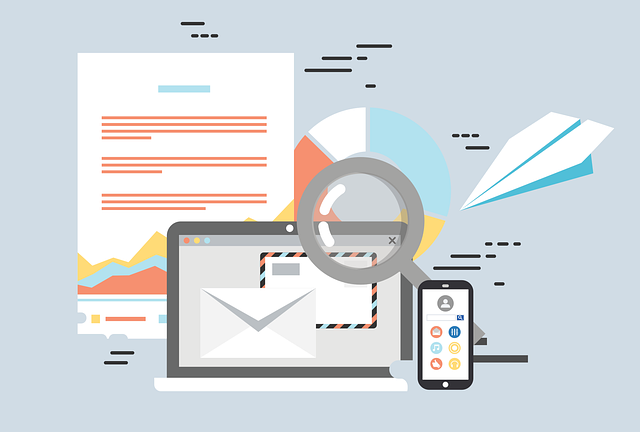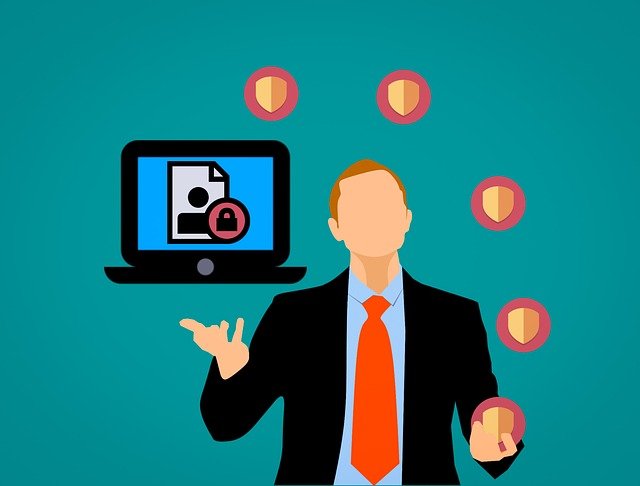Do you know that identity theft is not a joke, Jim?! Well, this article focuses on how best you can protect yourself from identity theft.
In Season 3 and Episode 21 of the TV Series ‘Product Recall,’ Jim’s hilarious act of impersonating Dwight elicited an angry response from the impersonated Dwight when he screamed, ‘identity theft is not a joke Jim, millions of families suffer every year!’

Dwight was certainly right about one fact: identity theft is no joke!
In the report US Identity Theft: The Stark Reality by Aite Group, 47% of Americans suffered from identity theft, with over $712.4 billion lost to identity theft in 2020.
Additionally, it is projected that the US alone will suffer over $721.3 billion in loss to identity theft in 2024.
Table of Contents
What Is Identity Theft?
Identity theft is a pervasive and sophisticated crime wherein individuals exploit stolen personal information to engage in fraudulent activities while posing as the victim.
The information they seek is extensive, ranging from the seemingly innocuous, like your name, to the more sensitive aspects of your life, such as your social security number, credit card details, address, phone number, and even bank information.
Identity theft is a complex and deeply personal crime that I’ve seen unfold in various ways.
Methods Employed by Identity Thieves
- Physical Theft: It’s disheartening to witness the simplicity with which identity thieves snatch purses or wallets. These seemingly everyday thefts provide them immediate access to identity cards, credit cards, and other crucial documents, offering a direct pathway to wreak havoc in someone’s life.
- Online Data Gathering: In the digital realm, where I often operate, identity thieves exploit online platforms to gather information. The oversharing on social media becomes a vulnerability, a goldmine for those with malicious intent. It’s a reminder to exercise caution and thoughtfulness when navigating the digital landscape.
- Mail Theft: Intercepting physical mail is a tactic that hits close to home. Witnessing the invasion of someone’s privacy through stolen emails from their mailbox is a stark reminder of how personal boundaries can be violated, leading to potential financial and emotional distress.
- Change of Address Fraud: The cunning manoeuvre of submitting fraudulent ‘change of address’ forms is a deceptive tactic. Redirecting mail to an alternative location gives identity thieves an unauthorized peek into personal information, making it even more challenging to detect fraudulent activities. That’s why I will recommend the Reship Virtual Address service.
Real-Life Cases
- Frank Abagnale: Made famous by the movie “Catch Me If You Can,” Frank Abagnale assumed various identities, successfully forging checks worth millions of dollars. His story underscores the adaptability and audacity of identity thieves.
- TJX Companies Data Breach: In one of the largest data breaches, hackers infiltrated TJX Companies’ computer systems, compromising over 94 million customer credit and debit card details. This case highlights the impact of large-scale data breaches on individuals’ financial security.
- Ashley Madison Hack: The Ashley Madison website suffered a massive data breach, exposing sensitive information of users seeking extramarital affairs. The breach led to instances of blackmail and extortion, showcasing the potential emotional and financial consequences of identity theft.
- Equifax Data Breach: In 2017, Equifax, a major credit reporting agency, experienced a data breach affecting approximately 147 million consumers. The breach exposed social security numbers and other sensitive information, emphasizing the far-reaching consequences of large-scale data compromises.
- Michael Brown’s Identity Theft Ordeal: Michael Brown, a former Federal Emergency Management Agency (FEMA) director, fell victim to identity theft when criminals used his personal information to open fraudulent credit card accounts. This case underscores that even individuals in prominent positions are not immune to identity theft.
These real-life cases demonstrate the pervasive and evolving nature of identity theft, urging individuals to adopt proactive measures to protect their personal information and financial well-being.
Numerous identity theft cases show that identity theft is no joke, and you should take steps to protect yourself from falling victim to identity theft.
Here are recommended services that you can use to prevent identity theft:
OmniWatch: Continuously monitors the dark web to identify and remove your personal information from malicious websites and marketplaces.
Incogni: Automatically removes your personal information from over 30 people search websites and data brokers, helping to reduce the risk of identity theft and online scams.
Surfshark Alert: Provides real-time alerts when your personal information is found on the dark web, allowing you to take immediate action to protect your identity.
DeleteMe: This helps you remove your personal information from a wide range of data brokers and people search websites, reducing your digital footprint and minimizing the risk of identity theft.
Surfshark Alternative ID: Generates unique, anonymous email addresses for every website you sign up for, preventing your personal email address from being leaked or sold.
McAfee Identity Protection: Scans your entire online presence to identify potential threats to your identity, providing actionable recommendations to help you stay protected.
Norton LifeLock: Offers comprehensive identity theft protection, including dark web monitoring, identity restoration assistance, and a $1 million identity theft insurance policy.
Reship Virtual Address: Provides a secure, private mailing address that can be used to receive packages and mail, protecting your home address from exposure.
READ ALSO: What Is A Data Broker? [Including Best Data Removal Service]
Best Identity Theft Protection Services
Types Of Identity Theft
There are several types of identity theft, but the most common form of identity theft includes:
1. Financial Identity Theft
This remains the most widespread form of identity theft. Perpetrators target credit card information, banking details, and other financial data to make unauthorized transactions.
This can involve creating credit cards in your name, making online purchases, or withdrawing funds using stolen credit/debit cards. The scale of financial identity theft is staggering, with over 12.7 million residents lost over $16 billion to financial identity theft.
2. Medical Identity Theft
Medical identity theft occurs when criminals fraudulently access medical services, insurance, and prescription drugs while posing as you.
By using stolen personally identifiable information and medical details, they create false medical records in your name.
Correcting these records can be a challenging and time-consuming process, making prevention crucial to avoiding the associated complications.
3. Criminal Identity Theft
In cases of criminal identity theft, individuals provide false identities—often stolen ones—when arrested for a crime. Some may go as far as obtaining state-issued documents, such as driver’s licenses, using stolen information.
The consequences are severe, as innocent victims may end up serving time for crimes they didn’t commit while the actual criminals remain at large, exploiting the stolen identity to evade justice.
4. Social Media Identity Theft
With the rise of social media, identity thieves exploit online platforms to impersonate individuals. They use stolen personal information to create fake profiles, engage in fraudulent activities or tarnish the victim’s digital reputation.
Social media identity theft can lead to significant emotional distress and reputational damage, emphasizing the importance of securing personal information online.
5. Child Identity Theft
Children are increasingly becoming targets of identity theft. Thieves may use a child’s Social Security number to open fraudulent accounts, and the crime often goes unnoticed for years.
Discovering child identity theft can be particularly challenging, making it essential for parents to monitor their children’s personal information and take preventive measures.
READ ALSO: Online Privacy Explained
6. Tax Identity Theft
Tax identity theft involves criminals using stolen Social Security numbers to file fraudulent tax returns and claim refunds.
Victims often discover the crime when their legitimate tax returns are rejected or when they receive unexpected notices from tax authorities. This type of identity theft can result in financial losses and complications with tax authorities.
7. Employment Identity Theft
In cases of employment identity theft, individuals use stolen personal information to secure employment.
The thief may present your details to potential employers, creating a situation where your work history becomes intertwined with the imposter’s actions. This can lead to legal complications and damage your professional reputation.
8. Driver’s License Identity Theft
Perpetrators may use stolen information to obtain a driver’s license in the victim’s name. This not only poses a risk to the victim’s driving record but may also link them to criminal activities committed by the imposter.
Discovering such identity theft can be challenging, and victims may only become aware when legal issues arise.
9. Utility Identity Theft
Identity thieves may use stolen information to open utility accounts, such as electricity or water, in the victim’s name. This not only results in financial repercussions for the victim but can also lead to disruptions in essential services.
Regularly monitoring utility bills and promptly addressing any discrepancies is crucial in preventing and mitigating this form of identity theft.
10. Insurance Identity Theft
In this type of identity theft, criminals use stolen personal information to fraudulently obtain insurance policies. This can include health, life, or property insurance.
The victim may remain unaware until they encounter difficulties in obtaining legitimate insurance or face unexpected policy changes due to the imposter’s activities.
Regularly reviewing insurance documents and promptly reporting any discrepancies is essential for protection against this form of identity theft.
READ ALSO: Identity Protection Guide: Safeguarding Your Personal Data
Why Is Identity Theft Not A Joke, Jim?
In product recall, there’s an attempt to make the audience wake up to the reality that identity theft affects almost every American household. Hence Dwight’s exclamation, ‘identity theft is not a joke Jim, millions of family suffer every year’ from identity theft.
In the UK, identity theft remains a persistent issue, with over 600 identity theft frauds occurring daily in 2022, representing a significant increase from the previous year. This alarming trend highlights the urgent need for heightened vigilance and comprehensive identity protection measures.
The vulnerability of personal information, particularly credit card details and Social Security Numbers (SSN), remains a major concern. These sensitive details, once stolen, become readily available on the dark web at shockingly low prices, often less than a dollar. This commodification of personal information underscores the urgency for robust identity protection strategies.
A closer examination of reported data breaches in the US reveals the staggering scale of the problem. In 2022 alone, over 1.4 billion records were compromised in data breaches, highlighting the ever-expanding reach of identity theft. The consequences of these breaches extend far beyond mere statistics; they translate into tangible, life-altering consequences for victims.
Over half of the stolen data leads to significant financial losses for victims, painting a vivid picture of the devastating aftermath of identity theft. In 2022, identity theft losses in the US reached a staggering $5.8 billion, demonstrating the far-reaching financial impact of this crime.
Furthermore, a considerable portion of the purloined data ends up on the dark web, amplifying the risks and demonstrating that the consequences are not confined to the digital realm.
Identity theft’s impact extends far beyond financial losses. It can jeopardize life’s savings, compromise medical insurance, and even lead to unjust imprisonment, all orchestrated by cunning identity thieves.
These stark realities underscore that identity theft is not a mere punchline; it is a profound threat that demands our collective attention and proactive measures to protect against its far-reaching consequences.
READ ALSO: Incogni Review – Remove Your Personal Information From People Search Sites
How Do I Protect My Information On The Internet?
Most identity thefts happen online due to the massive proliferation of social media accounts and the increasing use of IoT devices. Here are some tips to protect you from online identity theft.
- Use strong passwords for your accounts: A good enough password is a mix of alphabets in upper and lower keys, numbers, and symbols not associated with your name, date of birth, address, spouse’s name or date of birth, workplace, etc. ideally, you can use a password generator to generate and manage secure passwords for your accounts.
- Use financial details only on secure sites: before using your credit card details on any website, ensure that the website you’re visiting displays ‘HTTPS’ rather than ‘HTTP’ and a secure padlock icon signifying that information entered on such website is securely encrypted to avoid theft.
- Install antivirus on your devices: antivirus or malware software protects your devices from harmful software engineered to steal information from your devices.
- Use a VPN: A VPN protects your IP address, location, and other device-identifying information traceable to you.
- Limit your usage of personally identifiable information online on social media websites. You should use the correct personal details on secure websites only for official purposes.
- Use secure browsers, clear your browsing history, or use incognito mode while browsing. Secure browsers and browsing in Incognito mode do not store browsing history nor collect cookies. Alternatively, you can hold down the Shift+Control+Delete keys to clear your browsing history.
- Tape your webcams and block your microphone to prevent hackers from remotely using your laptop’s camera and microphone to collect compromising images of you or listen in on your conversations.
- Activate an ad-blocker on your browser while surfing the net to protect you from malware that can collect information from your devices while disguising itself as an ad.
- Have a dedicated email address for your bank account to protect your account from mass email compromise. Ideally, you should use secure email service providers like ProtonMail for your financial accounts.
- Password-protect your WiFi router: Aside from stealing your bandwidth, you can also lose passwords and important data to hackers and identity thieves intercepting your WiFi network.
How Do I Prevent Identity Theft?
No doubt, identity protection is very essential. Patronizing and installing the following software on your device can act as added protection from identity theft.
- Identity protection tools such as Incogni by Surfshark, McAfee Identity Protection, Norton LifeLock Identity Advisor, and IOLO Privacy Guardian can help you remove your personal information from public websites on the internet.
- Kamo by CCleaner to protect you from online tracking
- Abine DeleteMe to delete your data from data brokers’ servers.
- Hushed Phone number to protect your original phone number from identity thieves
- VPN to protect your data, IP address, and location. Some of the best VPN services you can subscribe to include CyberGhost VPN, IPVanish, PureVPN, ExpressVPN, NordVPN, Ivacy, PIA, Surfshark, ZoogVPN, TunnelBear, HideMyName VPN and FastVPN.
- Antivirus software that incorporates strong and intelligent antivirus engines to protect your devices from spyware. Some of these include Heimdal Security, McAfee, Norton, Kaspersky, Trend Micro, Panda Security, AVG, ESET, Vipre, Acronis True Image, G DATA Security, and Intego.
Wrapping Up The Identity Is Not A Joke Jim Episode
Now that you’re aware that identity theft is not a joke, you should take the appropriate steps recommended in this post to protect yourself from falling victim to identity theft.
If you’ve once fallen victim to identity theft, act quickly by reporting to your financial institution and notifying the authorities. You should also follow our advice and recommendations strictly to prevent future occurrences.
INTERESTING POSTS
- Interview With Michael Bruemmer, Vice President of Experian Data
- 5 Benefits of Having a Home Security System
- 8 Popular Types Of Cybercrimes In The 21st Century
- Best Cloud Storage Services According To Reddit Users
- Web Host Agents Scam Exposed [Eye Opener and Must Read]
- Best Home Security Cameras According To Reddit Users
- Best Password Manager According To Reddit Users
- Best Paid Antivirus According To Reddit Users
- SurfShark Antivirus Review 2022 [MUST READ]
- Best VPN For 2022
About the Author:
Gina Lynch is a VPN expert and online privacy advocate who stands for the right to online freedom. She is highly knowledgeable in the field of cybersecurity, with years of experience in researching and writing about the topic. Gina is a strong advocate of digital privacy and strives to educate the public on the importance of keeping their data secure and private. She has become a trusted expert in the field and continues to share her knowledge and advice to help others protect their online identities.
Daniel Segun is the Founder and CEO of SecureBlitz Cybersecurity Media, with a background in Computer Science and Digital Marketing. When not writing, he's probably busy designing graphics or developing websites.


